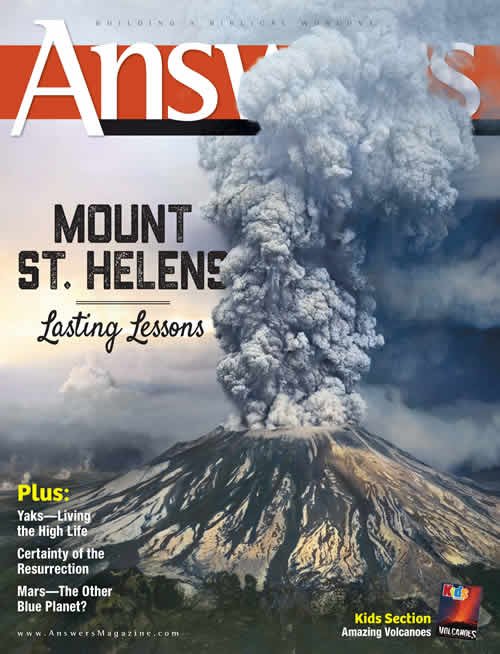Trust the Experts
Last Word
What does it really mean to be an expert, anyway? If we can’t rely 100% on anybody, how can we speak with confidence outside the Bible?

Mike Matthews
Editor in Chief
I don’t like to be wrong. In everything I say, I want to be accurate, “speaking the truth in love” and edifying others (Ephesians 4:15, 4:29). But the older I get, the more I realize how hard that can be.
It seems that “the truth” is always changing, as experts discover new insights. I keep discovering that the “common knowledge” of my youth or college days was in error. Even in areas I know best—English literature and publishing—I don’t feel like an expert at all. Uncovering the truth requires diligence, perseverance, and a truckload of humility.
I try. I’m constantly reading and trying to learn new things. Over the past fourteen years, I’ve also enjoyed the privilege of working full-time with some of the world’s leading researchers in creation. It’s been fun to pick their brains about their latest insights in various fields of biology, archaeology, theology, and paleontology.
But access to the best minds doesn’t settle every question. The challenges keep reminding me that everyone is finite and mortal. We need the help of many others, and most of all, we need help from the Lord.
Even Experts Don’t Know Everything
I take comfort knowing that even the “experts” feel inadequate. I once thought a PhD in geology made you an expert in the whole field, but now I know some specialize in hard rocks (petrology), while others specialize in sedimentology, speleology (caves), or a host of other “–ologies.” Outside their narrow field, they defer to other specialists.
Another wrinkle is that experts with PhDs disagree with one another, sometimes passionately—even when both are committed to the Bible’s authority. Who is qualified to pick the right side or determine when both experts are wrong?
Discerning the truth gets even dicier when you realize that some narrow fields don’t have many specialists at all. Planetary geology (the study of rocks on planets outside the Earth) is a good example.
So it’s always important to seek the best people available. The Mars article in this issue is a good example. Although the author is a leading astronomer, he did not act alone. He diligently examined published research and attended professional meetings to discuss questions with his secular colleagues. He then vetted his views among his creationist peers. Only then did he publish in our magazine, where his article went through further review by PhDs in geology and astronomy.
God gives wise counselors to help us (Proverbs 24:6). We don’t reject their expertise just because they’re fallible, but we weigh their work carefully against expertise from others.
The key is humility. We need to be honest about our limitations. Although we know the big picture from God’s Word, we don’t know all the facts. We see in a mirror dimly, and know only in part (1 Corinthians 13:12–13).
The wisdom of experts is good only to the degree that it reflects “true truth”—the real events of history and the true nature of reality. That’s why we must first turn to God’s Word, the one infallible source of truth and expertise. The Bible trumps all other experts and gives us everything we need to understand the big picture. Even when it comes to details, this rock-solid foundation enables us to have “more understanding than all our teachers” (Psalm 119:99).
Next Issue
Romans 1 tells us that the Creator is clearly seen in His creation. The next issue focuses on three powerful evidences that confirm creation and leave unbelievers without excuse. Also learn the importance of a literal Adam and Eve to the roles of men and women. Other topics include the religious beliefs of the United States’ founders, and ants’ amazing engineering abilities.
Answers Magazine
April – June 2015
The eruption of Mount Saint Helens in the 1980s changed how we view catastrophe; on its thirty-fifth anniversary, we examine what we’ve learned since then.
Browse Issue SubscribeRecommended Resources

Answers in Genesis is an apologetics ministry, dedicated to helping Christians defend their faith and proclaim the good news of Jesus Christ.
- Customer Service 800.778.3390
- © 2024 Answers in Genesis






